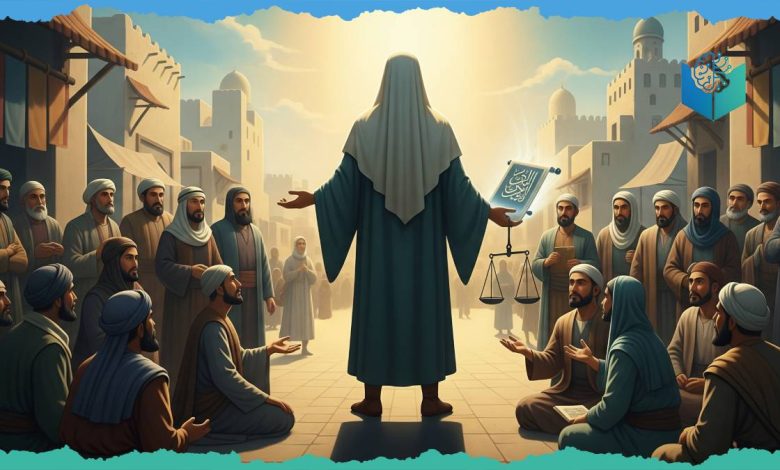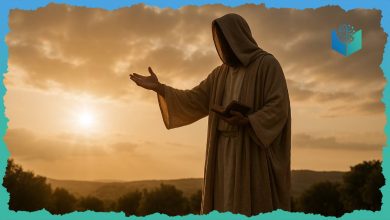Prophet Muhammad’s Leadership Lessons

When people study leadership today, they often turn to business schools, management theories, or motivational speakers. But one of the greatest examples of leadership comes from more than 1400 years ago — the life of Prophet Muhammad ﷺ. His leadership qualities remain timeless, and his Seerah (biography) offers guidance for modern leaders in every field. By reflecting on the Prophet Muhammad leadership, we can discover practical wisdom for ethics, decision-making, and building strong communities.
Prophet Muhammad Leadership in Context
As you read Everything You Need to Know About Prophet Muhammad ﷺ, you will understand the fact that Prophet Muhammad’s life was full of difficult challenges, and he overcame every single one of them through the power of his wisdom and leadership skills. The Prophet Muhammad leadership was not limited to religion. He led a diverse society, guided communities, managed conflicts, and inspired change. Unlike many leaders of history, his authority was grounded in trust, service, and fairness.
This is why the Quran highlights justice as a principle of leadership:
“Indeed, Allah commands you to render trusts to whom they are due and when you judge between people to judge with justice. Excellent is that which Allah instructs you.” (Quran 4:58)
This verse captures the heart of ethical leadership in Islam — responsibility, trust, and fairness. These are universal lessons that modern leaders can apply.
Leadership Qualities of Prophet Muhammad
What made Prophet Muhammad leadership unique? His character combined vision, compassion, patience, and integrity. These leadership qualities of Prophet Muhammad set him apart and continue to inspire.

Vision and Purpose
A leader without vision cannot guide people forward. The Prophet ﷺ provided a clear purpose: a just, moral, and God-conscious society. This vision gave his followers direction and unity.
Integrity and Trustworthiness
Even before his Prophethood, he was called Al-Amin (the trustworthy). His honesty earned him respect and influence. The Quran emphasizes truthfulness as a mark of faith:
“O you who have believed, fear Allah and be with those who are true.” (Quran 9:119)
Integrity builds credibility — a principle leaders today cannot ignore.
Patience in Adversity
The Prophet ﷺ faced hostility, boycotts, and battles. Yet he remained patient and steady. The Quran praises patience as a leadership quality:
“So be patient. Indeed, the promise of Allah is true.” (Quran 30:60)
Leaders today face constant challenges. Patience is what keeps vision alive when the road is difficult.
Compassion and Mercy
True leadership is not built on fear but on compassion. The Quran describes the Prophet ﷺ as:
“And We have not sent you, [O Muhammad], except as a mercy to the worlds.” (Quran 21:107)
Compassionate leadership creates loyalty, harmony, and lasting influence, as it did for the Prophet Muhammad leadership.
Leadership Lessons from the Prophet
Looking at his Seerah, we find practical leadership lessons from the Prophet that modern organizations and communities can adopt.
Consultation (Shura)
The Prophet ﷺ did not rule as a dictator. He listened to his companions and valued their opinions. The Quran teaches:
“…and those who have responded to their master and established prayer and whose affair is [determined] by consultation among themselves…” (Quran 42:38)
Inclusive decision-making is a timeless leadership strategy.
Justice and Fairness
The Prophet ﷺ ensured fair treatment for all, regardless of background. Justice creates trust, and trust builds strong communities. Leaders today must remember that favoritism destroys credibility.
Strategic Thinking and Adaptability
From the migration to Medina to the Treaty of Hudaybiyyah, the Prophet ﷺ showed flexibility and foresight. He balanced short-term needs with long-term goals. This adaptability is a lesson in modern leadership from Seerah, which means the life of the Prophet Muhammad (PBUH).

Ethical Leadership in Islam
Ethics was at the heart of the Prophet Muhammad leadership. He proved that power and morality can go hand in hand.
The Quran commands fairness and honesty:
“And establish weight in justice and do not make deficient the balance.” (Quran 55:9)
This reflects ethical leadership in Islam — leaders must never compromise truth for temporary gain. In today’s world of corruption and broken promises, this principle is more relevant than ever.
Modern Leadership from Seerah
Why study Seerah in the 21st century? It is full of lessons that apply to business, politics, education, and community life.
Crisis Management
When faced with difficulties, the Prophet ﷺ remained calm and trusted in Allah’s guidance. The Quran reminds us:
“And rely upon Allah; and sufficient is Allah as Disposer of affairs.” (Quran 33:3)
Modern leaders can learn to stay composed and focus on solutions rather than panic.
Inclusivity and Unity
In Medina, the Prophet ﷺ united people of different tribes and faiths under one agreement. This inclusivity is a cornerstone of strong leadership today, reminding us that diversity strengthens communities.
Long-Term Vision
The Prophet ﷺ sometimes accepted short-term sacrifices to secure greater future benefits, like in the Treaty of Hudaybiyyah. This lesson about Islam teaches leaders today to think beyond immediate results and build sustainable progress.
Communication and Inspiration
A leader’s words can shape hearts and minds. The Prophet ﷺ was a master of communication, using simple, clear, and wise words.
The Quran itself emphasizes the power of kind speech:
“And speak to people good [words]…” (Quran 2:83)
This shows that leadership requires not just authority, but the ability to inspire, motivate, and uplift.

Role of Prophet Muhammad Leadership in Today’s Society
Whether in workplaces, governments, or families, the leadership qualities of Prophet Muhammad can guide us today.
- In business, having integrity and fairness builds trust with clients and employees.
- In politics, consultation and justice prevent corruption and division.
- In family life, compassion and patience strengthen relationships.
When we study leadership lessons from the Prophet, we find that his methods are not ancient relics, but living principles that fit modern society.
Conclusion
The leadership of Prophet Muhammad ﷺ is timeless. His qualities of vision, honesty, patience, and compassion make him one of the greatest leaders in history. From ethical decision-making to strategic thinking, every lesson from his life is relevant for today’s leaders. The Quran provides the foundation for these principles, proving that ethical leadership in Islam is both practical and inspiring. For those seeking authentic references, ayaat.ai offers access to Quranic knowledge for deeper study.
Q&A
Prophet Muhammad (PBUH) taught that leadership is a trust and a responsibility, not a position of power for personal gain. He emphasized that a true leader serves their community, practices justice, and leads by example through humility and compassion.
Prophet Muhammad (PBUH) was a good leader because he led by example, demonstrating justice, compassion, and humility. He built trust with his followers through his integrity and fairness, creating a unified and loyal community.
A good leader in Islam is someone who possesses a strong sense of justice, compassion, and humility. They lead by example, serving their community with integrity and prioritizing the well-being of others over personal gain. What did Prophet Muhammad say about leadership?
How was the Prophet Muhammad a good leader?
What makes a good leader in Islam?





